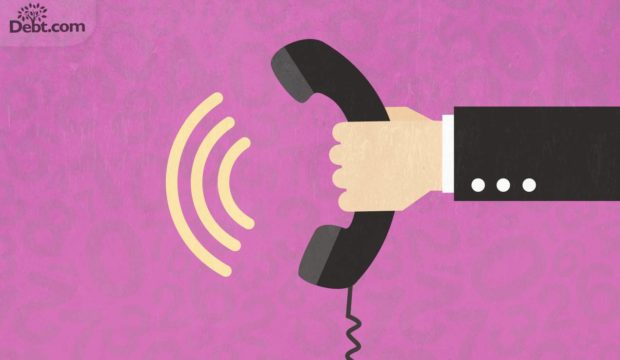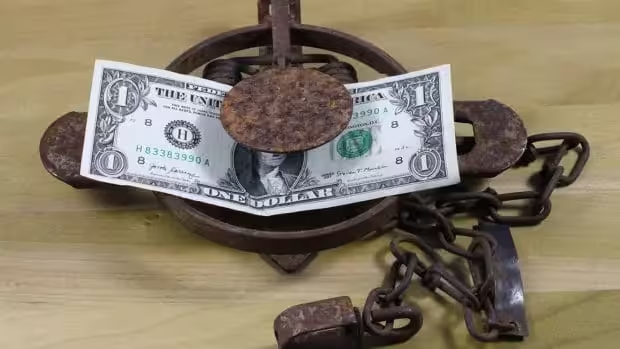There’s a real irony about the Consumer Financial Protection Bureau. Namely, most Americans had never heard of it until President Trump tried shutting it down.
The CFPB is still around. Since it was created by an act of Congress, it’ll take another to formally close it. President Trump, however, tried this month to lay off so much staff that it would effectively cease to exist. A federal judge temporarily blocked that until a hearing on March 3.
To anyone casually following this developing story, there’s usually a one-word question: Why?
What it was supposed to do
The answer is as complicated as trying to define what the CFPB does. It’s certainly more than it was originally founded to do…
- The CFPB calls itself “a 21st century agency that implements and enforces Federal consumer financial law and ensures that markets for consumer financial products are transparent, fair, and competitive.” That’s both wide-ranging and not very specific.
- Major media outlets simply call it a “consumer watchdog,” which is shorter but still doesn’t tell you what it actually does.
- Perhaps the best definition is this from NPR: “The main U.S. agency tasked with overseeing the financial products and services used by everyday Americans – from credit cards to checking accounts to home loans.”
The problem is, the CFPB was founded to do one thing, and it’s grown very quickly to do many things.
As the CFPB says itself…
The housing finance bubble and Great Recession were fueled by reckless practices in the mortgage industry, which trapped millions of homeowners in mortgages they could not afford, and Congress created the CFPB to ensure that never happened again.
Consumer Financial Protection Bureau
Quickly, CFPB attorneys went after mortgage scammers, made sure banks were obeying existing consumer-protection laws, and offered educational materials to homebuyers so they’d know their rights.
Soon after, however, the CFPB expanded into other areas.
What it actually does
In one notable instance, the CFPB tried regulating payday loans. It drew up 1,300 pages of new rules that payday lenders would have to follow – which it admitted would put many of them out of business.
If you don’t know what a payday loan is and never had to get one, good for you. As Debt.com says, “A payday loan is a short-term, costly loan meant to give debtors quick access to money, usually to cover emergencies or necessary costs until their next paycheck.”
Because so many payday loans end in default, the interest rates are incredibly steep. This leads to the “payday loan treadmill,” where borrowers take out new payday loans to pay off the old ones.
Here’s the problem: Eliminating payday lenders doesn’t eliminate the need for them. Cash-strapped Americans will simply seek out other solutions – possibly even illegal ones.
This is where I personally started getting concerned with the CFPB. I agree that payday lenders need to be regulated. I’ve seen firsthand how the treadmill drives people so deeply into debt, there’s literally no way out short of bankruptcy.
Yet some estimates said 85% of payday lenders might have gone out of business. Thankfully, these new regulations got held up in court and were never implemented.
Congress certainly needs to look at the payday loan industry, but one agency shouldn’t be able to change an entire industry without any oversight.
Other things the CFPB has done
The CFPB succeeded in getting medical debt removed from credit reports, which had the effect of raising credit scores even though Americans’ underlying debt remained unchanged. Again, this was a noble idea that maybe didn’t help as much as it should have, because high credit scores mean you can borrow even more.
The CFPB also tried capping banks’ overdraft fees. Republicans stopped it before it could be enforced. It’s certainly true that banks use overdraft fees to plump up their profits. The CFPB says overdraft fees total $5 billion a year.
Yet experts on both sides of the aisle predicted that banks would simply replace that money by raising other fees. It’s like squeezing a balloon. You just move around the air inside. What you really need to do is pop the balloon.
Again, I love the goal. As a debt expert for three decades, I want all Americans to keep more of their money. But the CFPB is the classic example of having only a hammer and seeing every problem as a nail.
The best thing the CFPB has done is log complaints and seek compensation. The CFPB says it’s received 7.7 million complaints and returned nearly $20 billion to consumers over the past 13 years.
But there’s already a government agency that did that before the CFPB was around. It still does that. It’s called the Federal Trade Commission.
Keep the mission, close the agency
Republicans want to kill the Consumer Finance Protection Bureau. Democrats want to keep it. What if there was a third option?
The CFPB was originally spun out of the FTC. Why not put it back?
There’s one accurate criticism of the FTC at the time the CFPB was created: The FTC has many missions and a limited budget. It defines its job like this…
The Federal Trade Commission enforces a variety of antitrust and consumer protection laws affecting virtually every area of commerce, with some exceptions concerning banks, insurance companies, non-profits, transportation and communications common carriers, air carriers, and some other entities. The agency leverages its resources and targets its enforcement efforts at practices that cause the greatest harm to consumers.
Federal Trade Commission
The CFPB was supposed to focus on doing fewer things better. But even throughout the CFPB’s lifetime, you could file a consumer complaint with the FTC, too.
Here’s something I wish Congress would investigate: Give the FTC half of the CFPB’s budget and its original mission of defending consumer rights.
What you need to do
Until that happens, the CFPB’s struggles mean you’ll have to be more diligent to avoid fraud or even just bad deals – and maybe that’s not an entirely bad thing. There’s plenty of advice out there, and it takes just minutes to read.
Debt.com is one of those places.
There are many different philosophies about how much government should affect our lives, but I’ve never met a Democrat or Republican who didn’t agree: The government should protect taxpayers from bad actors trying to separate them from their money.
Sadly, the government can’t outwit every scammer out there. They also can’t do it in real time. So we all must possess some situational awareness and educate ourselves.
If the recent CFPB controversy has any silver lining, it’s that Americans realized the CFPB existed for a reason. Even if you didn’t like how it was run – and I definitely had my issues with it – the mission was a good one. Now it’s your mission.












